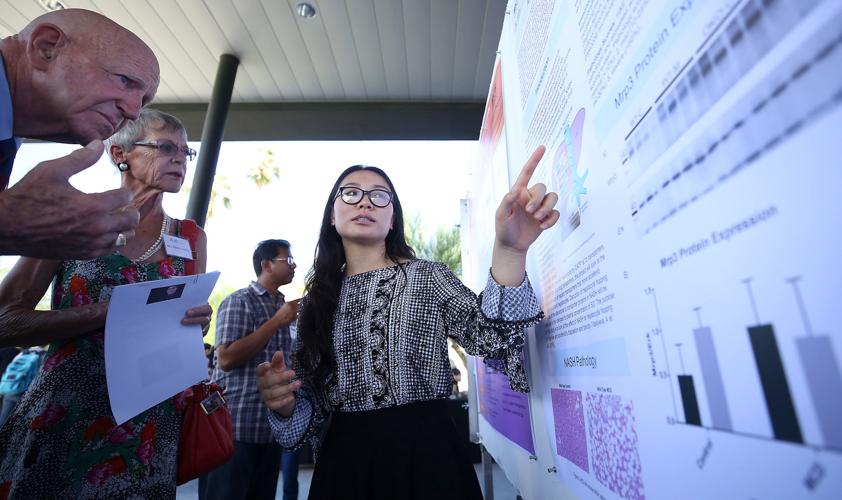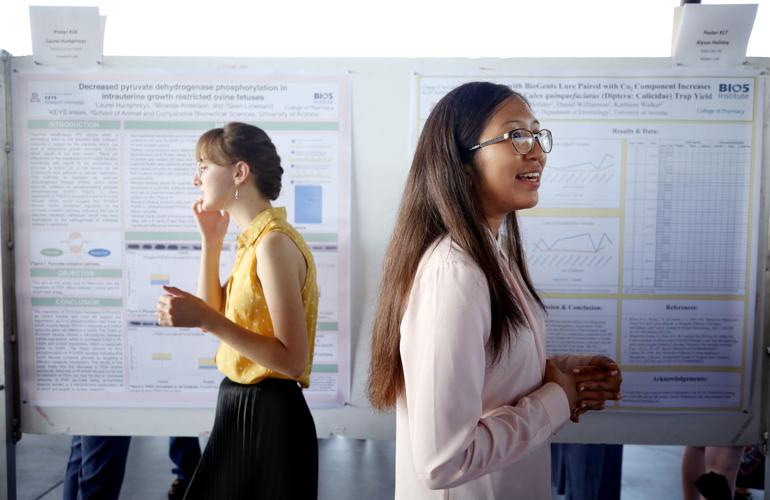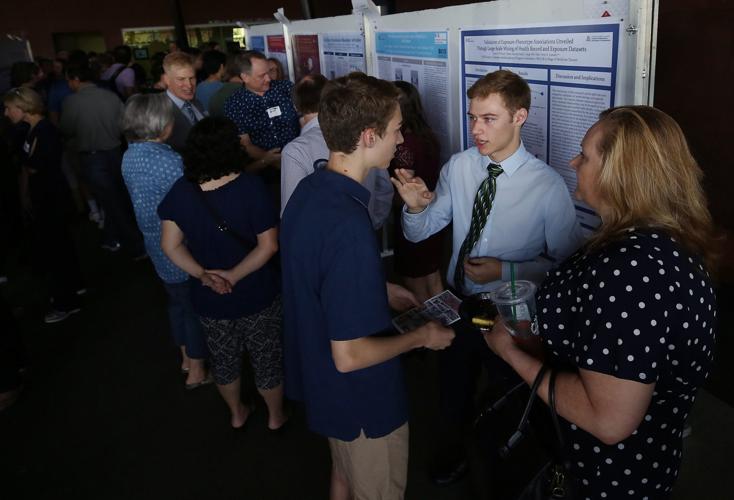Before Phuong-Trinh Dao, an incoming UA pharmacy student, could wrap up her seven-week research internship, she had to make a presentation about what she worked on during the summer.
As part of a group of 50 high school students taking part in the 12th annual KEYS Research Internship at the University of Arizona’s Bio5 Institute, Dao said the hands-on laboratory experience “was nerve-racking at first.”
“I didn’t know that I’d be so independent,” said the Tucson High Magnet School graduate, who hopes to become a doctor of pharmacy.
In the lab she was shown how to do something once, then left to it.
“I asked questions and made mistakes, but they were patient with me,” Dao said. “I never thought I’d be able to understand something like a Western blot,” a technique used to detect proteins present in tissue samples.
At poster presentations for the students’ work Friday morning that concluded the program, she dove right into her very technical, rehearsed explanation of her project.
She teamed up with Nathan Cherrington, professor of pharmacology and toxicology, to study the effect that NASH, a severe form of nonalcoholic fatty liver disease, has on a natural liver detoxification process.
“I practiced (the presentation) over 100 times,” she said as she easily explained the science in understandable terms when asked.
Of the nearly 400 students who have completed the KEYS internship between 2007 and 2017, 92 percent attended or will attend college. Funding for the program is split between the Bio5 Institute and donations.
Starting last year, all KEYS alumni accepted to the UA automatically enter as Honors College students.
“They’ve proven they have the rigor to be honors students,” said Lisa Romero, communications director for Bio5.
Nearly two-thirds of KEYS alumni from 2007 to 2017 chose to return to the UA. About 71 percent stayed in Arizona for college.
Out of this year’s group, eight of the nine graduating high school seniors chose to attend the UA. One is headed to Arizona State University.
The average GPA of the students is 3.88. “We’re looking for students who we know can hack this program,” Romero said. “It’s academically rigorous.”
But GPA is just one indicator of success in the program. she said. At KEYS, the selection committee also considers input from science teachers and interview performance. More than 250 students applied this year to attend.
“We also want a diverse representation of students from across the state,” she said. “KEYS is about giving students the opportunity for research that they might not have had otherwise.”
More than two-thirds of KEYS students since 2007 were women. More than half of all students are from underserved communities.
This fall, Alyssa Holiday will be a senior at Tuba City High School on the Navajo Nation. She has always been interested in science and she likes to help people, she said. Her goal is to become a medical doctor.
She partnered with Kathleen Walker, assistant professor of entomology, for her research project to compare the effectiveness of traps for disease-spreading mosquitoes in Southern Arizona.
She recognizes that studying insects isn’t the same as medical science, but “it’s great to have any lab experience and contribute.”
One of the hardest parts of the internship, Holiday said, was the culture shock and the homesickness. Her dad always told her she could do anything.
When she was struggling, he told her, “If your dream is scary to you, that’s good.”
Holiday plans to apply to the UA, Dartmouth and Stanford for college. “I want to make something of myself,” she said.






